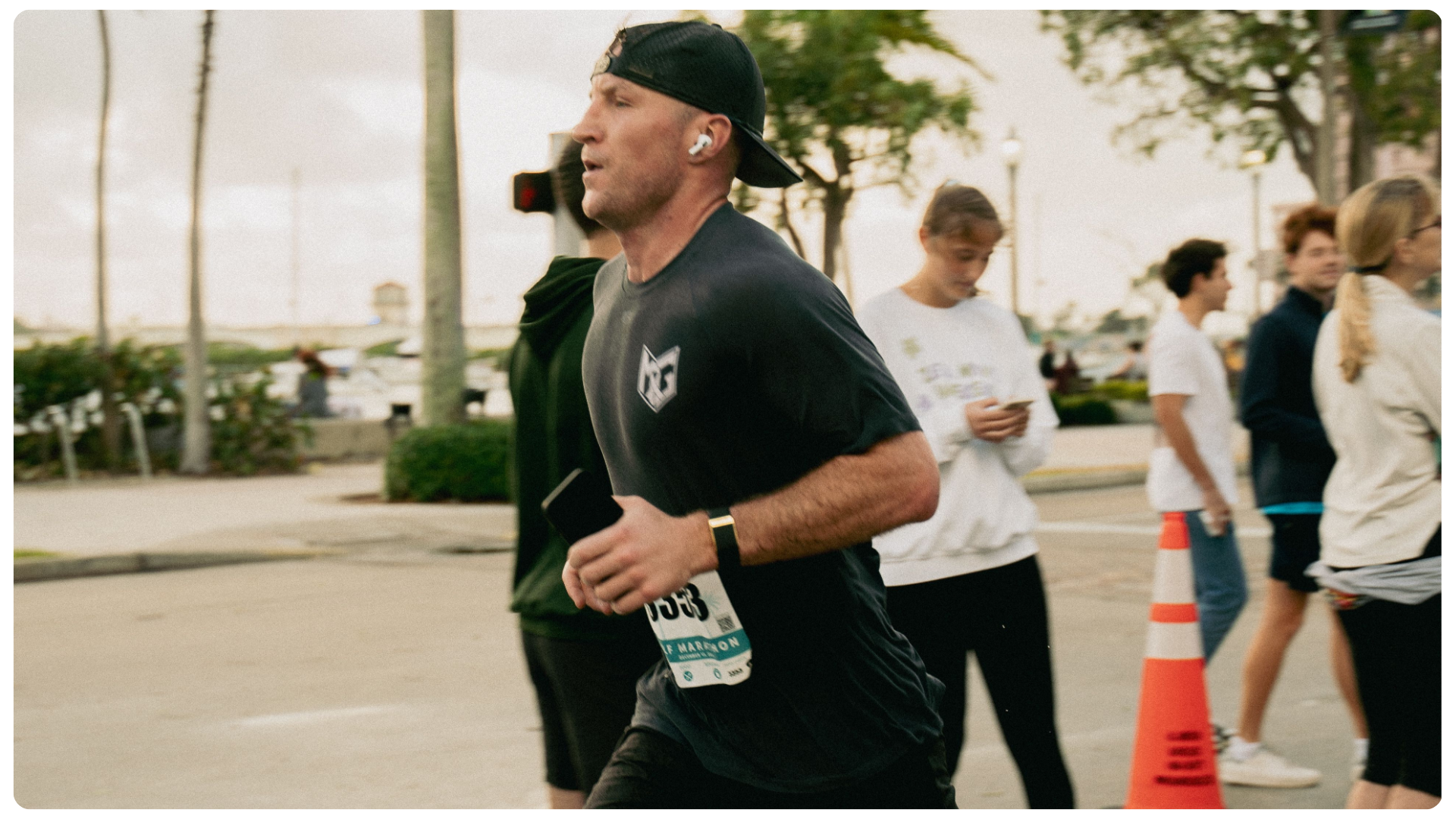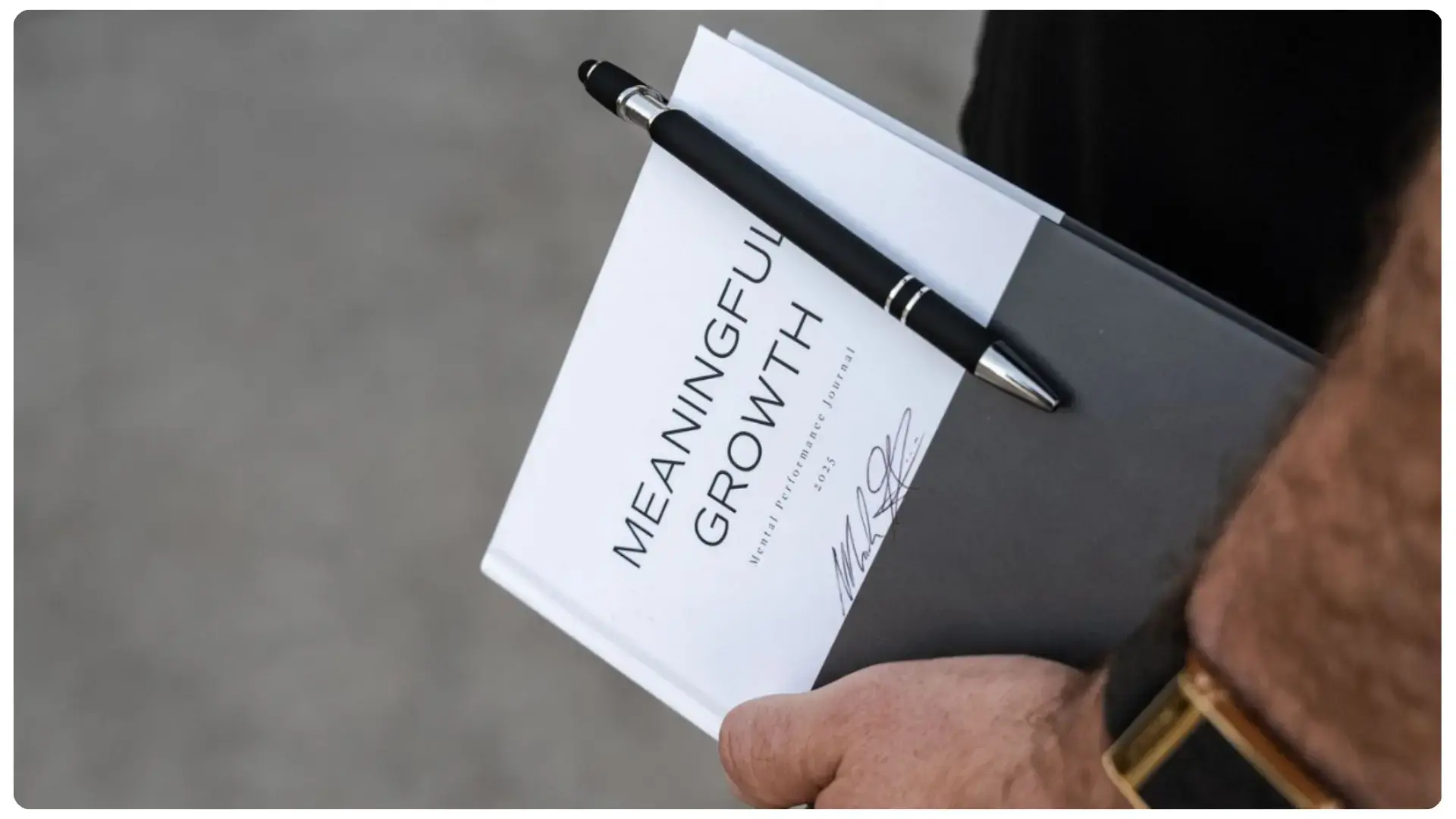Build These and Develop Trust
Is it possible to be productive, stay healthy, and remain whole all alone?
.png)
“Mark, you need to relax! All you need to do is calm down. Be quick, but don’t hurry!” Many coaches urged me to tame my inner fire.
Growing up, especially during my teenage years, I firmly believed the only difference between those who advanced to the next level and those who were cut from teams was work ethic. It wasn’t until I was 21, during my junior year of Varsity Lacrosse at Yale, I realized the importance of recovery, relaxation, and rest.
In many ways, that’s what Sport Psychology is all about: the “how to.” How longer exhales activate our parasympathetic nervous system and reduce our heart rate over time… How maintaining a wide, panoramic gaze alleviates tension in our bodies… How body-scanning and progressive relaxation techniques stimulate sensations of calmness and rejuvenation.
I vividly remember my very first lacrosse shift in the Fall of my freshman year. I ran onto the field with so much excitement and intensity. A perfect pass to my stick hit my mesh and bounced all the way back to the teammate who threw me the ball. I was intense, but also tense.
After many bouts of frustration and months of working harder in college, I came to understanding that notion. The intangibles of relentless drive and persistence helped me get recruited to an esteemed university; however, I needed more reliable resources, strategies, and techniques to unlock latent potential.
I used to think activities like meditation, yoga, mindfulness, and relaxation were weak practices done by weak athletes who lacked strength, toughness, and competitive fire. I was completely wrong.
The individuals who are the best in the world at what they do treat recovery with the same importance as their technical training, physical fitness, strength and conditioning.
For the past decade, I have had recurring blocks of time marked in my Google Calendar for scheduled quality downtime. Why? Because discipline becomes desire. Because I have to relax many times before I want to relax. Because new habits are onerous to establish before they become unconscious. Success never happens with a simple snap of the fingers. It takes reps, reps, reps…
So now, every day to every week, I find private places to meditate, practice 4-7-8 breathing, and intentionally go on nature walks.
A few years back, I toured the Human Performance Center in Coronado, California. Inside the Center, built for the Navy SEAL community, there are spaces specifically designed for relaxation: salt float tanks, noise-canceling pods, and meditation rooms. The community understands for the SEALs to perform their best when it matters most, they must be able to sink to the level of their training, to rehearse becoming calm, and to achieve resonance through steady breath rates, heart rates, and brain waves. Mental clarity allows for physical coherence.
Here is a list of parasympathetic nervous system techniques to incorporate into your routine. Remember, what we need most lies where we least want to look! I no longer have to do these practices; I want to! Prioritizing visualization, laughter, and gratitude is now part of my daily routine.
Take solace in knowing that every storm passes. They always do. Embrace the storm until stillness is found, and then float. Become aware, mindful, and present. Exhale tension. Inhale compassion. Listen to that small voice.
The Lord said, ‘Go out and stand on the mountain in the presence of the Lord, for the Lord is about to pass by.’ Then a great and powerful wind tore the mountains apart and shattered the rocks before the Lord, but the Lord was not in the wind. After the wind there was an earthquake, but the Lord was not in the earthquake. After the earthquake came a fire, but the Lord was not in the fire. And after the fire came a gentle whisper, a small still voice. –1 Kings 19:11-12
Our breath brings the mind from nowhere to now here.
Peaceful presence is a gift.
Calm is contagious.
Mark was born and raised in New Jersey where he became an elite high school student-athlete. He earned varsity letters as captain of his high school football, basketball and lacrosse teams and was elected into the National & Spanish National Honor Societies. He attended a post-graduate academic program at Deerfield Academy in Deerfield, MA before college where he earned his Bachelor of Arts degree in Economics from Yale University in New Haven, CT. He is currently a graduate student working toward his doctorate degree in Sport & Performance Psychology at San Diego University for Integrative Studies under Dr. Cristina Versari, Founder & CEO of SDUIS and former Head of Sport Psychology for the National Basketball Association. He is a Teaching Associate with Dr. Robert Gilbert, a Professor at Montclair State University (NJ) and a leading authority and author in the field of Applied Sport Psychology. Mark is currently the lead Mental Health & Wellness Player Advocate for the Premier Lacrosse League.
Mark is a Certified Fitness Trainer, Nutritionist, and Mental Performance Coach. He is currently pursuing a graduate degree in Sport & Performance Psychology at the San Diego University for Integrative Studies.
At Mark Glicini Peak Performance, we recognize that physical health reflects mental health. We study how intention drives behavior and emphasize that true peak performance requires an integrative approach—mind, body, and spirit.
As the Mark Glicini Meaningful Growth Foundation embarks on a journey of endurance and togetherness against the trials and tribulations brought upon by cancer, I state: every inch of my heart is in this.
Like so many, cancer has had a profound impact on my life. It took the lives of my grandfather and uncle before I was born. For years starting in 2011, I stood by my mother’s side as she battled and overcame lymphoma. Her fortitude, unwavering support from loved ones and God’s will triumphed amid extreme adversity.
Although we have not and may not win every fight, we will relentlessly strive to make an individual’s growth meaningful and to ensure his or her family feels cared for and supported. Thank you for your love, God Bless!

Is it possible to be productive, stay healthy, and remain whole all alone?

Throughout my childhood, I would point to work ethic, determination, and tenacity as essential attributes among those who are successful.

Etched into my spirit as a middle school student-athlete, my first lacrosse coach would repeat: “Mark, be the one.”